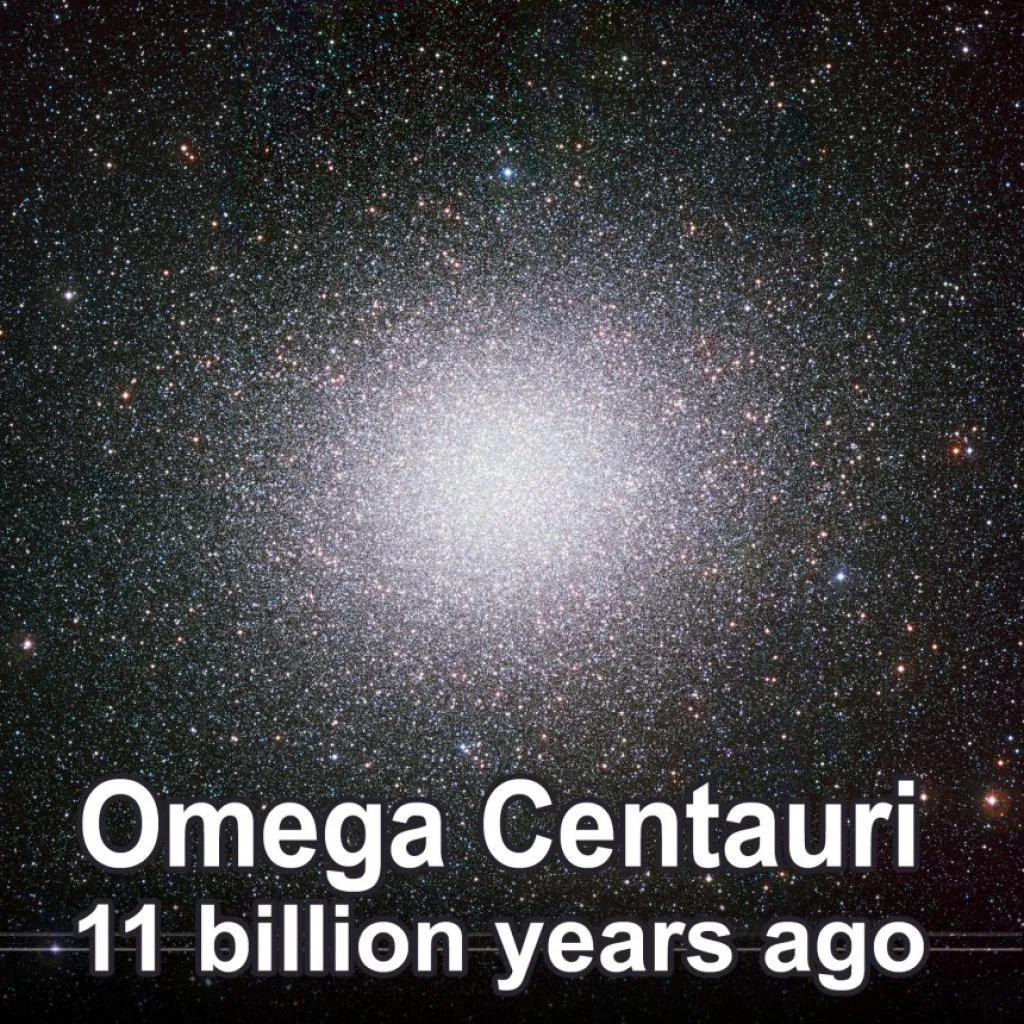
Omega Centauri
Omega Centauri, or NGC 5139, is a globular cluster in the constellation of Centaurus that was first identified as a non-stellar object by Edmond Halley in 1677.
Located at a distance of 15,800 light-years (4,850 pc), it is the largest globular cluster in the Milky Way at a diameter of roughly 150 light-years. It is estimated to contain approximately 10 million stars and a total mass equivalent to 4 million solar masses.
Omega Centauri is so distinctive from the other galactic globular clusters that it is thought to have an alternate origin as the core remnant of a disrupted dwarf galaxy.
OBSERVATION HISTORY
In 150 A.D., Greco-Roman writer and astronomer Ptolemy catalogued this object in his Almagest as a star on the horse's back, "Quae est in principio scapulae".
German lawyer and cartographer Johann Bayer used Ptolemy's data to designate this object "Omega Centauri" with his 1603 publication of Uranometria.
Using a telescope from the South Atlantic island of Saint Helena, English astronomer Edmond Halley rediscovered this object in 1677, listing it as a non-stellar object. In 1715, it was published by Halley among his list of six "luminous spots or patches" in the Philosophical Transactions of the Royal Society.
Omega Centauri has been known as an unusual globular cluster for a long time. Results obtained by the NASA/ESA Hubble Space Telescope and the Gemini Observatory in 2008 revealed that the explanation behind Omega Centauri's peculiarities may be a black hole hidden in its center.
One implication of the discovery is that it is very likely that Omega Centauri is not a globular cluster at all, but a dwarf galaxy stripped of its outer stars, as some scientists have suspected for a few years.
The above video zooms in from a wide-field image of the constellation Centaurus into the heart of the globular cluster Omega Centauri as seen by Hubble in 2008.
credit: R. Gendler, ESA/Hubble (M. Kornmesser & L. L. Christensen)





















